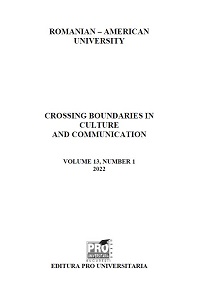Iron Curtain in Reality and Mentality – Border Crossings in Hungarian Films after the Change of the Regime
Iron Curtain in Reality and Mentality – Border Crossings in Hungarian Films after the Change of the Regime
Author(s): Miklós SághySubject(s): Fine Arts / Performing Arts, Visual Arts, Film / Cinema / Cinematography, Sociology of Art, History of Art
Published by: Editura Pro Universitaria
Keywords: Hungarian film; border-crossing; Iron Curtain; change of the regime;
Summary/Abstract: During the cold war, Eastern and Western Europe were separated by the so-called Iron Curtain. From the Soviet Empire controlled Eastern Block, the Western countries seemed to be the land of freedom and wealth. Even if the official communist propaganda tried to refute this idea, its materialization is to be witnessed in several Hungarian films made during the 1980s. The democratic transformation that followed the fall of the Iron Curtain seemingly opened the Western world for people from Eastern Europe. Many Hungarian films, made in the 1990s and 2000s, depict the experience of Hungarians in the desired Western countries after the political changes. In my paper I intend to show: 1) the travels from the East to the West after the collapse of the Iron Curtain forced Eastern protagonists to face the incongruences between the imaginary and the real West 2) the disappointment and deception these travels bring about originate in the Eastern, communist upbringing and its consequences: unethical social reflexes and behaviour. Briefly, via the analyses of several examples taken from Hungarian cinema, I would like to instantiate how deeply the former separation of the East and the West - an imaginary Iron Curtain – still existed around 2000s in the mind of Eastern people.
Journal: Crossing Boundaries in Culture and Communication
- Issue Year: 13/2022
- Issue No: 1
- Page Range: 150-165
- Page Count: 16
- Language: English

